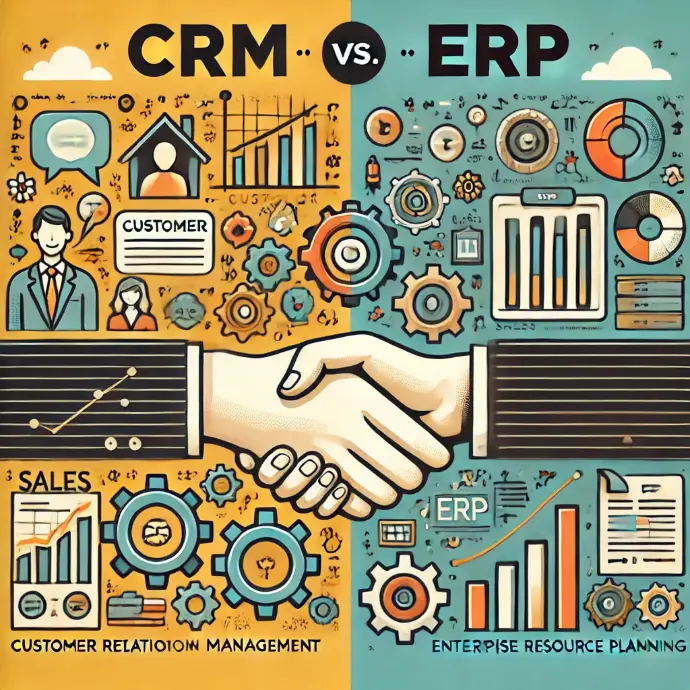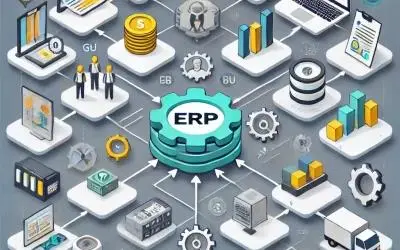
In an increasingly complex and regulated business environment, risk management and regulatory compliance have become fundamental pillars for ensuring the sustainability of any business. Modern organizations must not only focus on maximizing profits but also on operating within a framework that ensures long-term stability, minimizes risks, and complies with established regulations. This is where Enterprise Risk Management (ERM) solutions and environmental, social, and governance (ESG) strategies come into play.
What is Risk Management and Regulatory Compliance?
Enterprise Risk Management (ERM) is a holistic approach that enables organizations to identify, manage, and mitigate risks that can affect their operations. It encompasses three key components:
- Governance: Refers to the structure and processes used to direct and control an organization, ensuring that strategic objectives are met.
- Risk Management: Involves the identification, evaluation and control of risks that may interfere with the achievement of the company's objectives.
- Compliance: Involves adhering to the laws, regulations, standards and internal policies that are applicable to the organization.
On the other hand, the ESG (Environmental, Social, and Governance) concept focuses on the integration of environmental, social, and governance criteria into business strategy. Companies that adopt these principles not only manage risks better, but also improve their reputation and attract investors interested in long-term sustainability.
Integrating GRC and ESG: A Comprehensive Approach
The convergence of GRC and ESG enables companies to take a holistic approach to risk and compliance management. Some of the keys to effective management include:
- Comprehensive Risk Assessment: Not only financial or operational risks should be considered, but also environmental, social, and governance risks. This allows for a more comprehensive and proactive view.
- Strict Regulatory Compliance: Keeping up with local and international regulations is crucial. Modern GRC solutions allow you to automate many of these processes, reducing the margin for error and ensuring ongoing compliance.
- Transparency and Reporting: Companies that integrate ESG into their strategy not only improve their image with investors, but also comply with increasingly strict regulations on the disclosure of non-financial information.
Benefits of Adopting GRC and ESG Solutions
Implementing GRC and ESG solutions not only protects the company from potential sanctions and reputational damage, but also offers a number of strategic benefits:
- Improved Decision-Making: A data-driven approach enables companies to make more informed decisions aligned with their long-term goals.
- Increased Resilience: By anticipating and mitigating risks, organizations can better adapt to changes in the environment, maintaining their competitiveness.
- Attracting Investors: Investment funds and other financial actors are increasingly focused on supporting companies that demonstrate a strong commitment to sustainability.
- Compliance and Penalty Reduction: Avoiding fines and penalties is another direct benefit, in addition to maintaining a good relationship with regulators and stakeholders.

Risk management and regulatory compliance are not just a legal requirement, but a fundamental strategy for ensuring the sustainability and long-term success of any business. Integrating GRC and ESG solutions allows organizations not only to comply with regulations but also to more effectively manage risks and improve their market reputation. In a world where sustainability has become a priority, adopting these tools and approaches is essential for any company that aspires to endure.
Categories: ESC | GRC | Innovation

CRM vs. ERP: Which does your business need?
Oct 2, 2024 | Consulting, GRC
In the business world, technology plays a crucial role in optimizing processes and improving productivity. Two key tools that help companies grow and manage their operations efficiently are CRM (Customer Relationship Management) systems.

How ERP Solutions Transform Business Management
Aug 8, 2024 | Consulting
In the era of digitalization and global competition, companies are constantly looking for ways to improve their operational efficiency and maximize their resources. One of the most powerful tools in this regard is ERP (Enterprise Resource Planning) solutions.

Digital Entrepreneurship: How to Start and Scale Your Business in the Digital Age
Aug 16, 2024 | Consulting, Innovation
Digital entrepreneurship has revolutionized the way businesses are created and managed today. With the constant evolution of technology and access to digital tools, entrepreneurship has never been more accessible. However, starting and scaling a business...